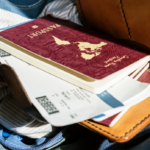If you’re a Bangladeshi student dreaming of studying abroad, Malta might not be the first destination that comes to mind. But hold on—this tiny Mediterranean country has big opportunities! Known for its rich history, safe environment, and internationally recognized education system, Malta is quickly becoming a top choice for students worldwide.
Imagine studying in a country where the sun shines almost all year round, the beaches are stunning, and the culture is a vibrant mix of European and Mediterranean influences. Beyond its beauty, Malta offers high-quality education at affordable rates, making it a practical and exciting destination for Bangladeshi students.
Let’s dive deeper into why Malta should be your next study destination, exploring everything from the best universities to scholarships, living costs, and life as an international student.
2. Why Choose Malta?
a. Global Recognition of Degrees
Degrees from Maltese universities are recognized globally, opening doors to job opportunities worldwide. Whether you’re studying engineering, business, hospitality, or the arts, a Maltese degree carries weight. The country’s education system adheres to the European Higher Education Area (EHEA) standards, ensuring top-notch academic quality.
b. English as an Official Language
No language barriers here! English is one of Malta’s two official languages, making it incredibly easy for Bangladeshi students to adapt to academic life and daily communication. From lectures to socializing with locals, you won’t feel lost in translation.
c. Cultural Diversity
Malta is a melting pot of cultures. As a student, you’ll meet people from all over the world, enriching your experience both inside and outside the classroom. This exposure will broaden your perspective and help you grow as a global citizen.
d. Safe and Student-Friendly
Malta is consistently ranked as one of the safest countries in Europe. With its low crime rate and friendly locals, international students feel welcomed and secure. The country’s small size also means you can easily explore it without worrying about long commutes or getting lost.
e. Gateway to Europe
Located at the crossroads of Europe, North Africa, and the Middle East, Malta is a travel enthusiast’s dream. Studying here gives you easy access to other European countries—perfect for weekend getaways or cultural exploration.
f. Good Economic Condition

3. Top Universities in Malta
a. University of Malta
The University of Malta is the oldest and most prestigious institution in the country. With a history dating back to 1592, it offers a wide range of undergraduate and postgraduate programs in fields such as business, engineering, IT, and the arts.
- Why Choose It?: The university is research-driven and collaborates with institutions worldwide. It also provides various student services to ensure a smooth transition for international students.
- Highlight: Its Master’s and Ph.D. programs are particularly popular among international students for their academic rigor and global recognition.
b. Malta College of Arts, Science, and Technology (MCAST)
MCAST is perfect for students interested in vocational and technical education. It offers diplomas, degrees, and professional certifications in areas like engineering, applied sciences, and business.
- Why Choose It?: MCAST focuses on industry-specific skills, ensuring students are job-ready upon graduation.
- Highlight: The strong ties with local industries provide excellent internship and job opportunities for students.
c. Institute of Tourism Studies (ITS)
If you’re passionate about hospitality or tourism management, ITS is the go-to institution. Malta’s booming tourism industry ensures that students receive hands-on experience and job opportunities in the field.
- Why Choose It?: Courses are tailored to meet global tourism demands, and the institute has partnerships with top hospitality chains worldwide.
- Highlight: The training programs often include internships at renowned hotels and resorts in Malta and beyond.
4. Scholarship Opportunities
For Bangladeshi students, the availability of scholarships can make studying abroad more affordable and accessible. Malta offers several scholarships and financial aid options for international students, especially those from developing countries.
a. Malta Government Scholarships
- The Maltese government occasionally offers scholarships under bilateral agreements with various countries, including Bangladesh. These scholarships are typically merit-based and cover tuition fees and living expenses.
- Tip: Check with your local education ministry or Malta’s embassy in Bangladesh for announcements about scholarship opportunities.
b. University-Specific Scholarships
- Many Maltese universities, including the University of Malta, provide scholarships for international students. These scholarships often reward academic excellence or financial need.
- Example: The University of Malta offers scholarships for postgraduate students enrolling in Master’s by Research or Ph.D. programs.
c. Erasmus+ Program
- As a member of the European Union, Malta participates in the Erasmus+ program. This initiative provides funding for students to study or train in other European countries, often including partial or full coverage of tuition and living costs.
- Tip: This program is particularly beneficial for Bangladeshi students seeking mobility options across Europe.
5. Cost Breakdown
Understanding the cost of studying in Malta is essential for proper planning. Here’s a detailed breakdown:
a. Tuition Fees
- Tuition fees in Malta are relatively affordable compared to other European countries.
- Undergraduate Programs: €8,000–€12,000 per year, depending on the course.
- Postgraduate Programs: €10,000–€15,000 per year for most Master’s degrees.
b. Living Expenses
- Accommodation: €300–€600 per month for shared apartments or university housing.
- Food: Approximately €200–€300 per month for groceries and eating out.
- Transportation: Malta has an efficient public transport system, costing around €25–€50 per month for students.
- Miscellaneous Costs: €100–€150 per month for leisure, books, and other personal expenses.
c. Visa Costs
- The student visa application fee is typically €66, with additional costs for document processing.
- Tip: Always have extra funds to meet any unforeseen expenses during the visa process.
d. Pre-Departure Costs
- Flight Tickets: One-way flights from Dhaka to Malta generally range between €500–€800, depending on the airline and season.
- Initial Deposits: Some universities may require a deposit before confirming enrollment.
e. Health Insurance
- International students must have health insurance, costing around €100–€150 per year.
6. What to Expect in Malta?
a. Weather and Lifestyle
- Malta enjoys a pleasant Mediterranean climate with over 300 days of sunshine annually. Winters are mild, and summers are perfect for beach outings.
- The lifestyle in Malta is relaxed, with locals valuing family, good food, and community. As an international student, you’ll enjoy a welcoming atmosphere.
b. Accommodation Options
- Students can choose from on-campus dormitories, private apartments, or shared housing.
- Tip: It’s advisable to book accommodation well in advance, as options near universities can fill up quickly.
c. Transportation
- Malta’s public transport system consists primarily of buses, making it easy to travel within the islands. Cycling is also becoming popular, especially for students living close to their campuses.
- Pro Tip: Students can apply for discounted travel cards, which significantly reduce commuting costs.
d. Part-Time Job Opportunities
- International students can work up to 20 hours per week during their studies. Popular job options include hospitality, retail, and customer service.
- Post-Study Work Opportunities: Malta’s booming industries, particularly in IT, finance, and tourism, provide excellent job prospects for graduates.
7. The Application Process for Bangladeshi Students
Applying to study in Malta is straightforward, but it’s crucial to follow the steps carefully to avoid delays. Here’s a detailed guide:
a. Research and Shortlist Universities
- Start by identifying the courses and universities that suit your academic and career goals. Websites of institutions like the University of Malta, MCAST, and ITS provide detailed course information.
b. Meet Entry Requirements
- Academic Qualifications: Most undergraduate programs require a higher secondary certificate, while postgraduate courses typically need a bachelor’s degree.
- Language Proficiency: Proof of English proficiency is essential. Commonly accepted tests include IELTS (minimum score of 6.0–6.5) or TOEFL.
c. Application Submission
- Visit the university’s official website to fill out the online application form.
- Prepare and upload required documents, including:
- Academic transcripts and certificates
- Passport copy
- Statement of Purpose (SOP)
- Recommendation letters
- Proof of English proficiency
d. Acceptance Letter
- Once your application is reviewed, the university will send an acceptance letter if you meet the criteria.
e. Visa Application
- Apply for a Maltese student visa through the Embassy of Malta or a designated visa application center in Dhaka.
- Required documents include:
- Valid passport
- Admission letter
- Proof of sufficient funds (bank statements)
- Health insurance
- Accommodation details
- Visa fee payment receipt
f. Timeline
- Start the process at least 6–12 months before your intended semester. Malta’s visa process can take 4–8 weeks, so apply early.
8. Life in Malta for Bangladeshi Students
Studying in Malta isn’t just about academics—it’s a chance to experience a new culture, meet diverse people, and grow personally and professionally.
a. Cultural Adjustment
- Maltese people are known for their warmth and hospitality, making it easier for Bangladeshi students to settle in.
- Festivals like Carnival and Notte Bianca are great ways to immerse yourself in local traditions and have fun.
b. Food and Lifestyle
- Malta’s cuisine is a blend of Mediterranean and Italian influences. While halal food options may be limited, there are supermarkets where you can find familiar ingredients.
- Restaurants and cafes offer affordable meals, but cooking at home is more budget-friendly.
c. Networking and Student Communities
- Universities in Malta often have international student groups where you can connect with peers from Bangladesh and other countries.
- Participate in events, workshops, and student activities to build a strong network and make friends.
d. Weekend Adventures
- Explore Malta’s stunning beaches, historical landmarks, and vibrant nightlife.
- Popular attractions include the Blue Lagoon, Valletta, and Mdina—the “Silent City.”
9. Challenges and Tips for Bangladeshi Students
While studying in Malta is an exciting opportunity, you may face a few challenges. Here’s how to navigate them:
a. Weather Adjustment
- The hot Mediterranean summers can be a stark contrast to Bangladesh’s climate. Stay hydrated and use sunscreen to adapt to the heat.
b. Accommodation Availability
- Finding affordable housing near universities can be competitive. Book early and consider sharing with fellow students to save costs.
c. Managing Finances
- Budget wisely. Track your expenses, look for student discounts, and avoid unnecessary spending.
- Tip: Use apps like Mint or Goodbudget to keep your finances on track.
d. Academic Pressure
- Adjusting to a new education system can be challenging. Seek help from professors, attend study groups, and use university resources to stay on top of your studies.
e. Homesickness
- Missing home is natural, but staying connected with family and friends through video calls can help. Join cultural communities or celebrate Bangladeshi festivals with other students to feel at home.
10. Post-Study Opportunities
Malta offers numerous opportunities for students who wish to stay and work after graduation:
a. Post-Study Work Visa
- International students can apply for a temporary residence permit to seek employment after graduation. This permit is usually valid for 6–12 months.
b. Job Market in Malta
- Key industries include IT, finance, tourism, and healthcare. Graduates with skills in these fields have excellent job prospects.
- Networking during internships and part-time jobs can often lead to full-time positions.
c. Career Advancement
- A degree from Malta can also serve as a stepping stone to further studies or job opportunities in other European countries.
d. Pathway to Permanent Residency
- After working in Malta for several years, you may qualify for permanent residency, offering long-term stability and benefits.
Conclusion
Studying in Malta is an exciting opportunity for Bangladeshi students. With its world-class education, affordable tuition, and welcoming culture, Malta provides the perfect environment for academic and personal growth. By carefully planning your journey—understanding the costs, application process, and post-study options—you can make the most of your time in this Mediterranean gem.
So, why wait? Take the leap and let Malta be the starting point of your global journey!
Let me know if you need further refinements or additional sections!










